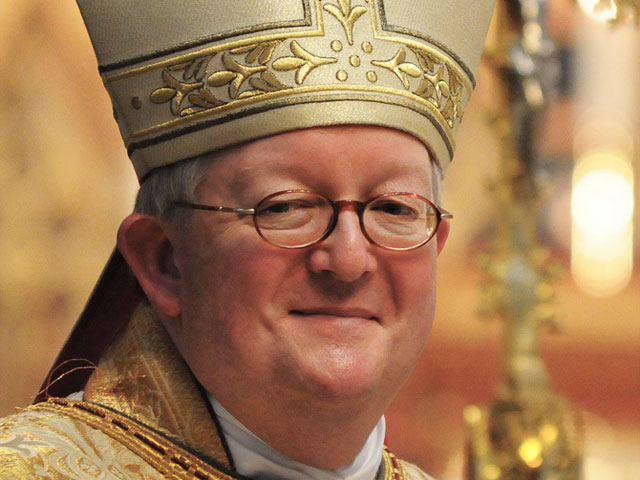The year’s at the spring, And day’s at the morn; Morning’s at seven; The hill-side’s dew-pearled; The lark’s on the wing; The snail’s on the thorn; God’s in His heaven—All’s right with the world!
Robert Browning, Pippa Passes (1841)
It’s a wonderful life. My heart has been singing songs of joy every morning as I take up my newspapers and survey the latest news on the abdication of Pope Benedict XVI. For a critic of religion reporting these are the good times — no slogging through continental newspapers to find a story to review for this blog. I am spoiled for choice just by reading the British press. Some of the stories have been so silly and wrong-headed as to be bizarre.
But there have been quite a few good stories from the religion reporters at the Times, Telegraph, Guardian, BBC and Independent in addition to the speciality church press (Catholic and Anglican) on this issue — but outside the specialist reporters the quality falls off sharply in the secular press. There is also an undercurrent of hostility towards the Catholic Church that few media outlets bother to hide — or appear to recognize.
A typical example came in BBC Radio 4?s Any Questions program. Members of the audience are asked to submit written questions on topical issues for discussion by a panel of speakers that ostensibly will provide a balance of views. The producers of the show pick the panel and the questions — and on Friday’s broadcast 23:45 minutes into the show (after questions on the food standards in the wake of the horse meat in hamburgers scandal) the question was put to the panel: “Is now the time for a black, woman pope?”
The first speaker, Ruth Davis, chief policy adviser for Greenpeace sidestepped the question, but said she did believe it was the duty of the next pope to “reconcile” the church with “the values most people hold” in Britain. Liberal Democrat MP Nick Harvey MP said to a roar of applause from the audience the Catholic Church “should be dragged into the 21st century,” and that it should update its teachings to “connect” with the values of the modern world. He and Labour MP Margaret Hodge urged the church to permit women clergy and and bring its moral ethic in conformance with those of the British establishment.
Mrs. Hodge — who was head of the Islington Council when that London Borough was responsible for the oversight of local care homes where investigators uncovered evidence of sexual abuse (Hodge refused to investigate the charges at the time as it would have cost too much) raised the issue of child sexual abuse. She argued the Catholic Church had been lax in addressing the sexual abuse scandal and observed that child sexual abuse and pedophilia were “rampant in the Catholic Church”. Only Environment Minister John Hayes declined to attack the church noting that he was not black, not a woman and not Catholic so he felt disqualified in offering an opinion on the propriety of a black woman pope.
Let me say that Any Questions is a serious, highly respected news program. The discussions of the other topics were measured — and somewhat dry. It was when the topic turned to the Catholic Church common sense flew out the door.
However, it was the Guardian that took the prize for week one in the All-England pope-bashing contest. The news article entitled “A black pope could result in mixed message over priestly celibacy” informs British readers that Africans are cretinous sex-maniacs whose Catholicism is skin deep and that the priesthood is a haven for gay men seeking meaning for their pitiful lives. This strange piece begins with an unfavorable comparison between Benedict and John Paul to John XXIII.
When Pope Benedict addressed the clergy of Rome on Thursday, he chose to talk to them about the Second Vatican Council, perhaps the central event of his life. He is among the last people alive to have taken part in that momentous gathering and it is a privilege of the long-lived to rewrite history. The then Joseph Ratzinger played a leading role in the revolutionary changes brought about by what Catholics call Vatican Two, but then did a theological U-turn after witnessing with horror the more secular upheaval of 1968. He and his predecessor, John Paul II, have step-by-step reoriented the Catholic church to the point that it is nowadays an institution which might dismay the pope who convoked the Council, John XXIII, and reassure his austere predecessor Pius XII.
Get that — Benedict has sought to reverse the reforms of the Second Vatican Council. And the evidence for this assertion? Well there is none, but we do get another outlandish assertion.
The change of direction has created a smaller, but more homogenous, church. Millions of the laity in Europe may have drifted away in despair at the gap between their lives and the Catholicism preached by the Vatican; priestly vocations in Europe may have fallen off a cliff, but those who remain – worshipers and clerics alike – are proud to belong to a conservative institution at odds with the times.
The article states the decline in church attendance and the fall of priestly vocations in Europe is not a phenomena of liberalism and secularism but the ultramontane (reactionary) policies of the last two popes. Evidence for this extraordinary assertion? Again, there is none. But at this stage we do move into the meat of the story.
So the election to the papacy of a conservative African or Asian prelate would, in principle, be welcome to large sections of the church in Europe and the United States. Even for the dwindling minority of liberals, it would be a reminder to the world that, overall, Catholicism is growing, and at a faster rate than the global population. But traditionally-minded Catholics might see one major change resulting from an African pope; the tradition of priestly celibacy.
Because of that tradition, combined with the contemporary intolerance of the laity towards unmarried relationships between priests and their “housekeepers”, it would appear that the number of gay men in the Catholic priesthood has increased.
How’s that for a plot twist — bet you didn’t see that one coming. Because the church no longer lets priests fool around with their housekeepers the clergy are now gayer. In support of this assertion we have a comment by the chief executive of the Lesbian and Gay Christian Movement (a minister of the Metropolitan Community Church) that the Catholic priesthood is a haven for those who cannot answer the question “Why aren’t you married yet?”
It is unlikely an African or Asian cardinal would be elected pope because they would crack down on the gay subculture of the European Catholic Church, the article states, and because they would be more likely to end priestly celibacy. The article observes:
… time and again, bishops on visits to Rome have stressed that, in many African cultures, a man without a woman beyond a certain age incites suspicion and lacks authority. That puts a Catholic priest at a notable disadvantage to the local imam in many of the areas where Christianity is competing with Islam for ascendancy. And since that is one of the most important challenges facing the church, a black pope could put an end to priestly celibacy.
Remember this article did not appear in the Comment is Free section of the Guardian or as an editorial or op-ed piece. It was printed in the news section — and did not even have the cover of being called “news analysis”. Where does one begin? There are several statements offered as fact that need substantiation — the cause of the decline of the Catholic Church in Europe, the priesthood as a refuge for gay men, the disinclination of Africans to honor clerical celibacy, and cultural pressures from Africa that identify unmarried men as being “suspicious” characters. These are opinions, not facts and this is certainly not news. The lack of professionalism in this story is compounded by an extraordinary cluelessness — the Guardian‘s Rome correspondent does not seem to get out very much.
My favorite Guardian article of the week though was published on 15 Feb in the World News section. It stated the pope had resigned because he had lost his faith.
When the resignation of the Pope was announced earlier in the week, the news seemed bizarre, almost unbelievable. I find, as I get my head around the idea, that the whole thing just becomes more bizarre, not less. If you strongly believe in God, I suppose you can tell yourself that He moves in mysterious ways, as per. But if you don’t, then this all seems rather like the moment when the curtain moves back to reveal the Wizard of Oz as a wee man pulling levers. Exposing the Papacy as a job, not a sacrosanct heavenly ambassadorship, is a quite risky thing to do, precisely because it’s so human, so humdrum, so non-spiritual. The only logical conclusion is that Joseph Ratzinger no longer believes that he is God’s representative on earth. Awkward. The Pope has surely lost his faith.
While I was surprised by the news of the pope’s resignation, I did not find it bizarre. The suggestion that he was stepping down because he no longer believed — that is bizarre.
I must say these stories made me laugh. While the first few roused my professional ire, the great number of silly stories (these three are but a skim of the surface) soon brightened my day. There is a Monty Pythonesque sense of the absurd in these stories. They are so terrible that they cease to upset me and leave me smiling. What say you GetReligion readers? Am I so jaded that I am unable to be offended anymore?











